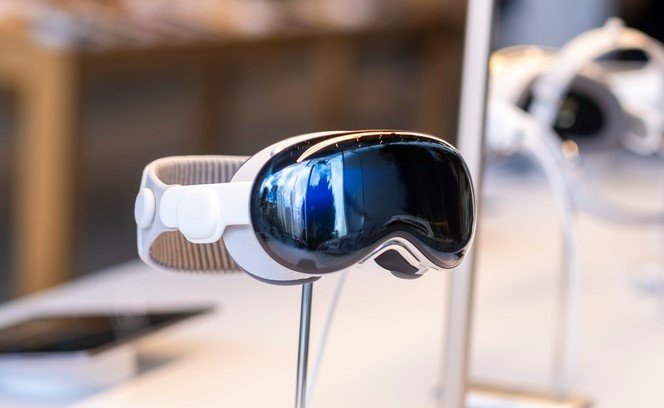Samsung Electronics unveiled its Galaxy XR extended reality headset on October 22, 2025, in a bold move to enter the growing market for face-worn computing devices. This new gadget, priced at $1,799, uses artificial intelligence from Google and powerful chips from Qualcomm to compete directly with Apple’s Vision Pro and Meta’s offerings.
Key Features of the Galaxy XR Headset
Samsung packed the Galaxy XR with advanced tech to make mixed reality feel natural and useful for everyday tasks. The headset boasts dual 4K micro-OLED displays that deliver sharp visuals with a pixel density of over 4,000 PPI, which beats many rivals in clarity.
Users can expect seamless integration with Android apps, thanks to the new Android XR operating system. This setup lets people run familiar apps in a virtual space without much hassle.
Battery life lasts about 2.5 hours for active use, and the device weighs less than Apple’s model, making it easier to wear for longer periods. Built-in cameras provide clear passthrough views of the real world, blending digital elements smoothly.

The headset includes hand-tracking and eye-tracking features for intuitive controls, reducing the need for extra controllers in many scenarios.
Partnerships Driving the Innovation
Samsung teamed up with Google and Qualcomm to build the Galaxy XR from the ground up. Google provides the Android XR platform and Gemini AI, which powers smart features like voice commands and real-time translations.
Qualcomm supplies the Snapdragon XR2+ Gen 2 chip, ensuring fast performance for demanding tasks such as gaming or virtual meetings.
This collaboration started about four years ago, with Samsung approaching Google to create a shared vision for extended reality devices. Executives from all three companies highlighted the open ecosystem that allows developers to build apps easily.
The partnership extends beyond this headset. Plans include lighter smart glasses in the works, with ties to eyewear brands like Warby Parker and Gentle Monster.
How It Stacks Up Against Apple Vision Pro
The Galaxy XR enters a market where Apple’s Vision Pro sets a high bar but comes at a steep $3,499 price. Samsung’s option costs about half as much, appealing to more buyers who want premium mixed reality without breaking the bank.
Here’s a quick comparison of key specs:
| Feature | Samsung Galaxy XR | Apple Vision Pro |
|---|---|---|
| Price | $1,799 | $3,499 |
| Display PPI | 4,032 | Around 3,386 |
| Weight | Lighter design | Heavier build |
| AI Integration | Google Gemini AI | Apple Intelligence |
| Battery Life | 2.5 hours | Up to 2 hours |
| Operating System | Android XR | visionOS |
Early users note the Galaxy XR feels more comfortable for extended wear, though Apple’s software might edge out in polish for now.
Market analysts point out that Samsung’s lower price and Android ties could draw in a wider audience, especially in regions where Apple devices are less common.
This launch happens amid a surge in AI-driven wearables, following OpenAI’s recent moves into hardware design.
Market Impact and Future Outlook
The extended reality market is heating up, with Meta holding about 80% share in virtual reality headsets. Samsung aims to carve out space by focusing on AI for work, play, and discovery.
Industry experts predict this could spark more competition, pushing prices down and innovation up. For instance, the headset’s multimodal AI lets users interact through voice, gestures, and even thoughts in some apps.
Looking ahead, Samsung plans a family of devices, including those slimmer glasses. This fits into broader trends where tech giants race to define the next computing era after smartphones.
Recent events, like Meta’s updates to its Quest line, show the sector’s rapid growth. Samsung’s entry might accelerate adoption, especially with bundled perks like a year of Google services for early buyers.
Reactions from Users and Experts
Tech reviewers praise the Galaxy XR for its display quality and AI smarts. One expert called it a “game-changer” for Android fans dipping into mixed reality.
On social platforms, people buzz about its potential:
- Many highlight the value for money compared to pricier options.
- Others express excitement over native app support, making it easy to jump from phone to headset.
- Some worry about battery life but see it as a fair trade for the lighter build.
Overall, the launch signals a shift toward more accessible extended reality tech in 2025.
What do you think about Samsung’s new headset? Share your thoughts in the comments below and spread the word if this article helped you understand the latest in tech.
